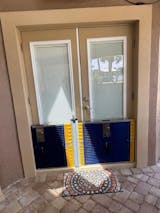Flooding is every homeowner's worst nightmare. It causes massive damage to the property, destroys the habitual lifestyle entirely, and may become really life-threatening if you don't prepare for it accordingly.
But are homeowners really that defenseless against flooding? While massive flood events are happening more and more often, information about flood safety and modern flood control is spreading worldwide, becoming more accessible and available for all sorts of properties.
In this article, we shall talk about the essential flood control solutions and safety rules for homeowners, those who live in residential areas and are responsible for their own safety, safety of their family members, and the value of their real estate and belongings.
Be proactive!
The severity of water damage and destruction does not really depend on the character of the flood, terrain, climate, and other geographical factors that you may think of initially. Statistically, minor seasonal floods cause much more water damage and losses to an average homeowner than the massive floods and storms that you see in the news from time to time.
Why does it happen? Mainly because we tend to activate and become proactive about our flood safety and protection only when we are promised to witness a massive disaster. Until then, yearly maintenance of the landscape, chores like cleaning gutters, and fixing minor cracks in the basement walls seem not that urgent and therefore lead to massive water damage that simply accumulates and worsens with time. Not to mention the idea of spending several hundred on flood barriers.
In other words, the only way to guarantee your safety and prevent massive losses is to take minor flooding as seriously as you would in case of a massive flood alert broadcasted on National TV.
Here are the 3 essential proactive steps every homeowner should take to prepare for any sort of flooding:
- Personal protection: evacuate or shelter in place as needed or recommended.
- Property protection: reduce the risk of damage to your home from flooding.
- Risk management: understand your risk and take steps to prepare for repairs.

Learn and do your homework
What do you actually need to do to protect your home from floods and water damage? Any homeowner will initially answer, "prevent water from getting inside." Which is right. But do you know how exactly to do it in your case?
In other words, are you sure that you are familiar with all the products, devices, and flood control solutions available in your area? Do you know which of them will work for your property and which will turn out to be a waste of time and money? After all, all houses and even backyards are different. What works for your neighbor may not fit your expectations simply because your house is made out of different materials, has a different structure, and your driveway is covered with asphalt while your owner prefers pebbles.
It is always best to address a professional when you are planning flood control for your property. They will estimate the risks and point out all the weak and strong points of your property, the riskiest areas, and the best ways to protect them.
Choosing versatile flood control products like flood barriers for homes is another foolproof way for any homeowner to protect their house. They are easily adjustable and will fit in any passage or doorway or can even be used as window shields in case of a hurricane.
Understand flood notifications
Last but not least is the importance of flood notifications and the ability of you as a homeowner to understand them and react accordingly.
Here are the messages to look after and how you should act after receiving them:
- Flood Warning: Flooding is happening now or is about to happen. If advised to evacuate, do so immediately.
- Flash Flood Watch: Flash flooding is possible. You should evacuate or be prepared to move to higher ground on short notice.
- Flash Flood Warning: A flash flood is imminent or happening now. Seek higher ground immediately.
- Other Alerts: Flood watches and warnings may also be issued for specific types of flooding, such as coastal flooding or river flooding.
- Evacuation Notice: If the danger is significant, authorities may issue an evacuation notice to alert homeowners that flooding is occurring and that it is important to leave the area.
Understanding what kind of flooding you are about to witness allows you to estimate the risks and timeframe to react accordingly. While in some cases you will have enough time to block the passages, move furniture, roll up the carpets and safely move to an elevated location, another scenario may only leave you time to grab documents, cash, and necessary emergency kit and evacuate immediately.
In other words, it is all about time management.
Do you want to learn more about flood safety and various ways a modern homeowner can protect their property from water damage and destruction?
Contact Dam Easy today! We shall be happy to consult you about modern flood control solutions and help you make informed decisions by picking flood barriers and other solutions that will help you face the next flooding with confidence and minimize the damage and losses it may bring.
$949.00
Floods are becoming more common around the world. What was once a 100-year phenomenon is now a seasonal trend that homeowners must deal with. That’s EXACTLY why you need this Dam Easy Ultimate Flood Barrier! An excellent alternative to heavy… Read MoreUltimate Flood Barrier



















